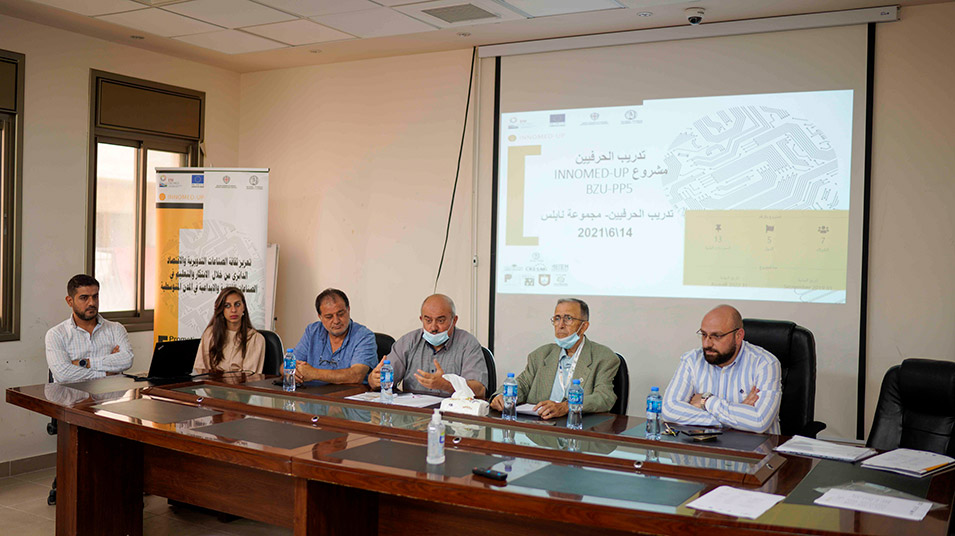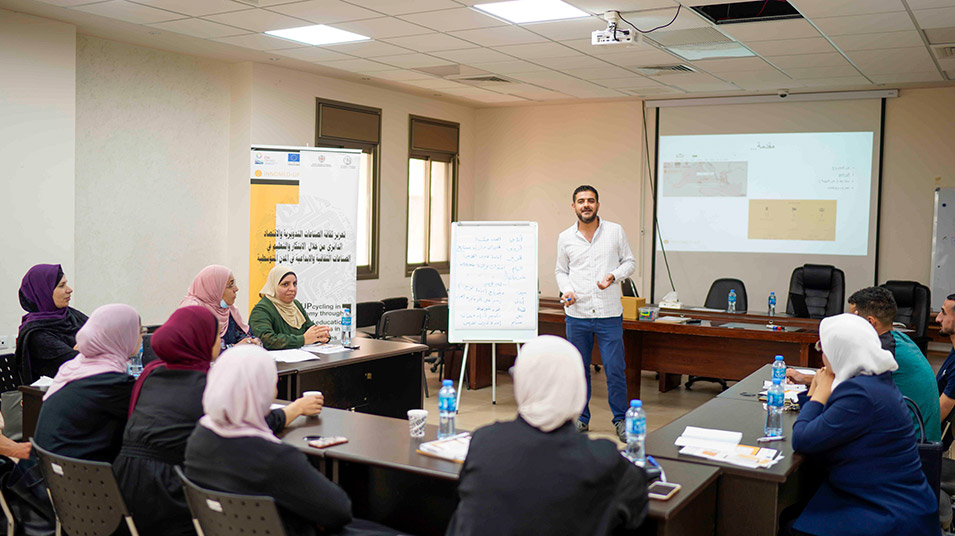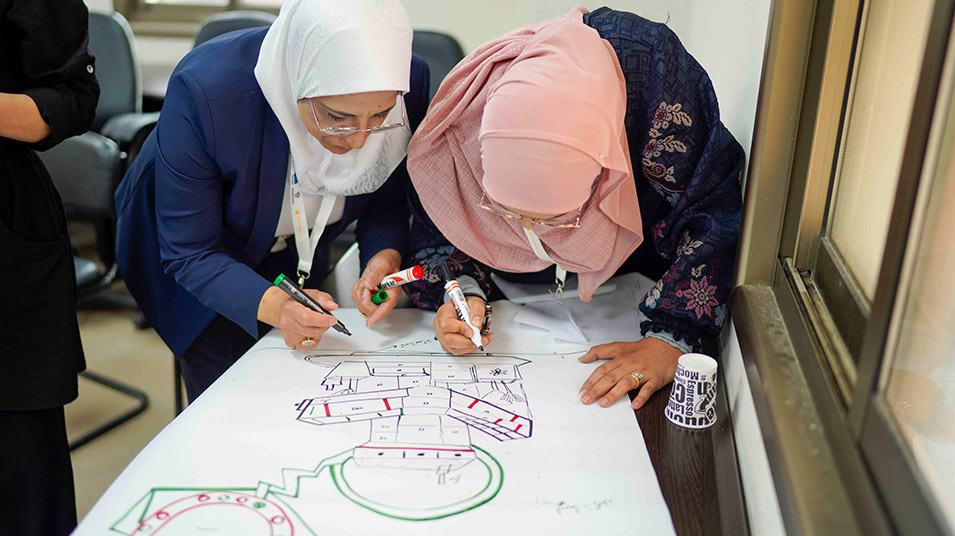University launches groundbreaking craftspeople training program in Nablus
Birzeit University has launched a training program for owners of small and medium-sized enterprises in Nablus, together with Palestinian, Jordanian, Tunisian, and European partners, on Monday, June 14, 2021.
The program, part of the “Promoting Upcycling in Circular Economy through Innovation and Education for Creative Industries in Mediterranean Cities (INNOMED-UP)” project, included 17 participants and will take place over four weeks.
In his opening remarks, Dr. Shadi Ghadban, a professor of architectural engineering at Birzeit University who leads the INNOMED-UP project, stressed the importance of cooperation, whether between national or international institutions, noting that such collaboration is what gives impetus to projects such as INNOMED-UP. He gave an introduction to the project's activities and plans, explaining that the partner institutions cooperate with cultural and creative industries to shift local urban economies towards a circular production and consumption paradigm.
Dr. Mohammad Jawabreh, the project’s communication officer, noted that the project is carried out with the full cooperation of local creative industry personnel. In fact, he added, the project’s pilot idea was proposed by local craftspeople to develop urban spaces in Hebron and Nablus.
Director of the Directorate of Tourism and Antiquities Mufeed Salah discussed the cultural and economic value of Palestinian craft products, which are characterized by their quality and authenticity. He also stressed the importance of tackling counterfeit handicrafts, saying that the value of authentic Palestinian crafts must not be diluted by imitation products.
Dr. Amal Hudhud, who works with the Nablus Municipality, praised such projects as INNOMED-UP, noting that projects that bolster the Palestinian crafts industry are especially important now as the economy heals from the impact of COVID-19. She noted that the recent wave of lockdowns, plus the restrictions placed by the Israeli occupation, have severely affected Palestinian small and mid-sized businesses, many of which have downsized their operations or outright closed down.
After the main speeches, the first training activity started with participants discussing circular innovations focused on the environment and explaining the design thinking process and how it can be used to develop new, eco-friendly products.












